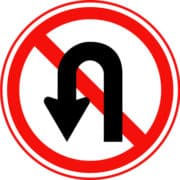Are You Eligible for Currently Not Collectible (CNC) Status?
If you owe the IRS or State of Maryland back taxes but are unable to pay them because of other financial obligations, you might be eligible for Currently Not Collectible (CNC) status. CNC status is a special designation which gives taxpayers a temporary hold on collections, during which time they are “protected” from collection efforts.
Keep reading to learn more about Currently Not Collectible status, your potential eligibility for the program, and how to request CNC status.
What Is Currently Not Collectible Status?
The IRS offers a payment deferral program known as Currently Not Collectible status for taxpayers who meet certain qualifications and are unable to afford their past due income tax payments. If the IRS or State of Maryland grants you CNC status, you won’t be subject to IRS collection efforts during your temporary hold, which means a temporary hold on levies and garnishments for as long as you remain in the CNC program (typically two years, although your status may be consistently monitored throughout enrollment for changes to income/status)
However, CNC status does not necessarily erase tax debt, and any tax debt you have may continue to accrue penalties and interest. Please be aware the IRS can still place a lien on your property, which could damage your credit, and the IRS will likely also withhold future tax refunds to satisfy the existing debt.
The IRS only considers granting CNC status to individuals who can’t pay their taxes while maintaining a reasonable budget for living expenses like rent, groceries, and utilities. In most cases, you also can’t qualify unless you’ve filed all your tax returns for previous years, and the IRS will ask for current financial information to determine your eligibility.
RELATED: Income Tax Payment Options Explained
In most cases, you are required to have filed all required tax returns and meet additional prerequisites for the State of Maryland’s “hardship program.” These programs often require full financial disclosure —including income and assets.
Determining Eligibility for Currently Not Collectible Status
If you have tax debt, but you live paycheck to paycheck and struggle to afford your monthly bills, you may want to consider filing for CNC status, especially if you owe an exorbitant amount in back taxes. CNC status can provide a cushion that may help you get back on your feet without having to worry that the IRS will immediately seize your wages or property.
When you work with S.H. Block Tax Services, we will consider three main options to help you address your tax liability: Currently Not Collectible Status, an Offer in Compromise (OIC), or an installment agreement.
To decide which option is right for you, we’ll follow a four-step process:
- First, we’ll calculate your monthly income and weigh it against your monthly expenses.
- Next, we’ll calculate what you might pay each month on an installment agreement with the IRS.
- Then, we will assess the potential for a settlement with the IRS or State of Maryland through CNC or OIC programs.
- Finally, we will compare each of these options and decide which one is right for you.
If it turns out that applying for CNC status might be in your best interest, we’ll also look at several additional variables, including the overall age of all your debt and whether your monthly living expenses fit within the IRS guidelines and leave you with little money left over.
If you can answer yes to one or more of these questions, we may decide that applying for CNC status is the right move for you. If you receive approval, then you’ll remain in Currently Not Collectible status until your income reaches or exceeds a threshold determined by the IRS at the outset of approval or until two years from the date of the agreement, whichever comes first. If and when your income exceeds that threshold or your two years are up, the IRS will review your file to determine if you should maintain CNC status or become eligible for collection efforts.
Requesting CNC Status
The process to request Currently Not Collectible status involves four steps:
1. Gather Documentation
The first thing you’ll need to do is compile all relevant documentation, including:
-
- Previous bank statements
- A comprehensive list that documents all your assets and their value
- A list of all sources of income and monthly living expenses
- Proof of payment for all out-of-pocket medical expenses
We’ll also want to review your income tax withholdings and any estimated tax payments you might be making to ensure you have a zero balance on next year’s taxes. Lastly, you may need to file any previous unfiled tax returns since the IRS wants to make sure you won’t be incurring any new tax debt once they decide to grant you CNC status.
2. Complete a Financial Statement
The IRS may request that you complete either a Form 433-A or Form 433-F, which they will then review along with your previous bank statements. Either version of form 433 will require you to:
-
- List all your income, assets, investments, and retirement accounts
- Determine the market value of these items
- Detail and categorize your income and spending over the previous three to six months
3. Analysis
Using the IRS’ Financial Analysis Handbook, you can begin to determine whether CNC status is the right route for you or if some other option would serve you better.
To begin this process, you should subtract your monthly living expenses from your monthly income to determine how much is left over and what amount could go toward an installment agreement or Offer in Compromise with the IRS. Next, you want to compare your monthly living expenses to what the IRS considers “allowable.” For instance, if your rent is $2,000 per month, but the average rent where you live is more like $1,200, the IRS is most likely only going to allow about $1,200 or less for rent, which will automatically leave you with $800 to spare from their perspective.
Unless you can prove additional expenses are necessary for you and your family’s “health, welfare and/or production of income” the IRS can disallow any expenses above what they consider allowable. You will also need to deliver proof of payment for all expenses for the IRS to verify.
Lastly, you will need to determine your net disposable income by subtracting your allowable living expenses from your monthly income. The resulting number represents how much the IRS would expect you to pay toward your tax liability each month. If you have little or no disposable income, you may be eligible for CNC status or similar programs.
4. Submission
Once you’ve completed the steps above, it’s time to submit your relevant financial documents for the IRS’ consideration. Make sure you or your tax representative have all the paperwork handy and that you are near a fax machine, then call the IRS directly. Once you’re on the line with an IRS agent, note the date and time of your call, the agent’s badge number, key discussion points, and any actionable outcomes.
If the IRS denies your request, the next logical step may be to arrange an installment agreement or negotiate an Offer in Compromise. Fortunately, the team at S.H. Block can help you with those options as well.
Contact S.H. Block Tax Services for Help With Your Tax Needs
Regardless of your income level or how much you owe the IRS or the State of Maryland, there are options available when it comes to resolving your tax liabilities. Whether you’re interested in receiving CNC status, creating an installment agreement, or negotiating an Offer in Compromise, S.H. Block Tax Services is well-versed in all these programs.
Our attorneys and support staff have decades of experience helping Maryland taxpayers, and we’re confident we can help you alleviate or even eliminate your tax burden. We offer free, no-obligation consultations, and we have earned an A+ rating with the Better Business Bureau.
If you need help with back taxes, please contact us by completing this brief form or calling (410) 872-8376. Statutes of limitations apply, so get in touch with us today to avoid further interest and penalties.
The content provided here is for informational purposes only and should not be construed as legal advice on any subject. Please read our full disclaimer here.












Leave a Reply
Want to join the discussion?Feel free to contribute!